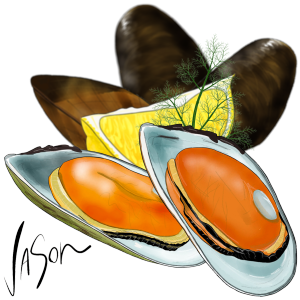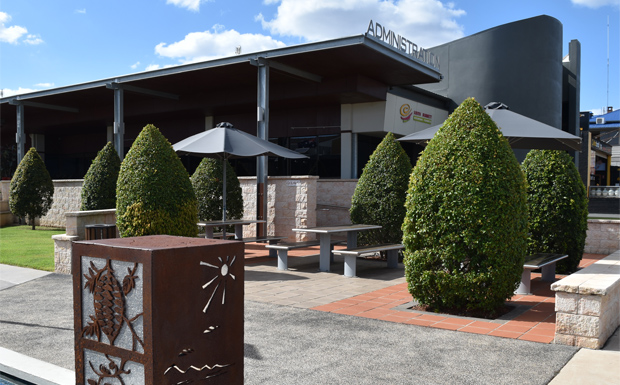by Jason Ford
Ford on Food
Mussels are one of my favourite shellfish.
They’re classified as a bi-valve mollusc, which means they have two shells joined together with a strong muscle – much like clams and pipis (or a flip phone).
Mussels grow in clusters around rocks, jetties and other objects that lie in the sea.
They grip to rocks with long silky threads called byssus, which look like a biker’s goatee beard protruding from the opening of the shell.
There are many varieties of mussels grown around the world, but the most common sold in Australia are New Zealand green-lipped mussels, Australian blue mussels, and black mussels.
Most of the mussels sold are farmed, as they are more consistent in quality and safer.
Wild mussels have been known to contain toxins as they are bottom filter-feeders that draw in water (which can be contaminated).
The female mussel has a bright orange flesh and the male mussel has a (boring) creamy white flesh.
My preference is to buy fresh live mussels, which can be a little difficult to obtain so I generally have to settle for frozen.
But if I do get hold of live mussels, here is a simple – but beautiful – recipe I use to cook them:
* * *
White Wine Mussels
- 50ml olive oil
- 50g carrots, finely diced
- 50g celery, finely diced
- 50g onions, finely diced
- 200ml dry white wine
- 24 whole fresh mussels
- Tsp chopped parsley
- salt and pepper
- a knob of butter
Method:
- In a saucepan, heat the olive oil.
- Add the finely chopped carrot, celery and onions, and then gently cook until tender.
- Add the dry white wine and bring to the boil.
- Add the fresh whole mussels (still in the closed shell) and cover with a lid.
- After cooking for 5 minutes on a high heat, the mussels should be cooked and the shells popped open.
- Remove the mussels from the pan and keep the juices boiling on the stove.
- Add the chopped fresh parsley, salt and pepper, a knob of butter and then pour over the mussels.
Note: Remove any beards or barnacles from the mussels prior to cooking.

























